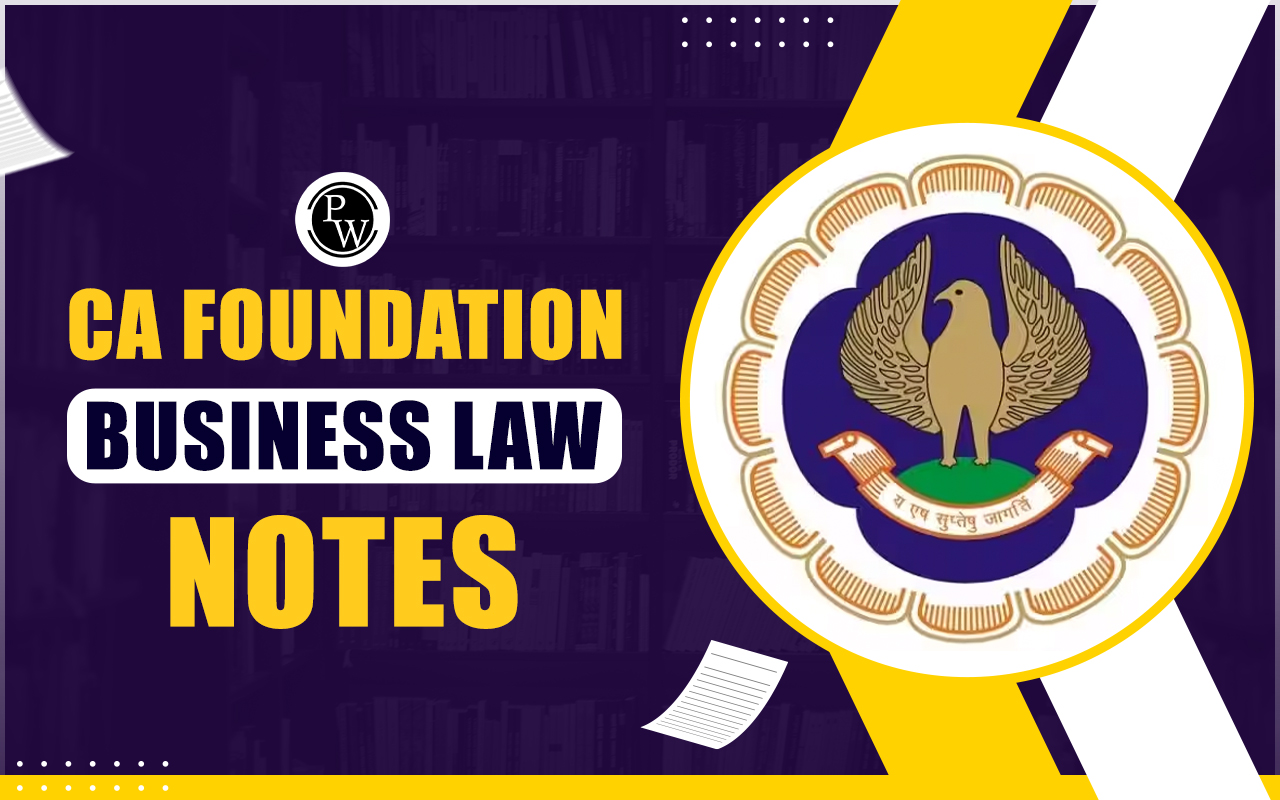
Accounting for Cryptocurrency Transactions: Accountants frequently confront many challenges in their practice, and some of these situations need dedicated accounting standards.
One such challenge is the accounting treatment of cryptocurrencies. Due to the absence of a specific accounting standard for cryptocurrencies, accountants must rely on existing frameworks. This article is designed to provide a comprehensive understanding of the existing landscape of cryptocurrency accounting and the evolutionary journey that has brought us to this point. Furthermore, it will shed light on the accounting standards accountants typically reference when dealing with cryptocurrencies. Let's embark on this insightful exploration!Accounting for Cryptocurrency Transactions Overview
Practitioners often need more specific accounting standards in dynamic accounting. A prominent example is the emergence of cryptocurrencies, a phenomenon for which no dedicated accounting standard exists. Consequently, accountants must navigate through existing accounting frameworks to address these complexities. This article sheds light on how Strategic Business Reporting (SBR) candidates can adeptly handle such situations, utilizing cryptocurrencies as a guiding illustration. During an examination, candidates must allocate time to contemplate each question or scenario and devise a strategic response. This entails considering which accounting standards may be pertinent and developing a plan to structure the answer. In cases where a direct accounting standard is absent, it is entirely acceptable to propose a suitable accounting standard and elucidate why it might not be wholly applicable. This article adopts this approach, utilizing International Accounting Standard (IAS®) 7, Statement of Cash Flows, IAS 32, Financial Instruments: Presentation, and International Financial Reporting Standard (IFRS®) 9, Financial Instruments, as references. Through this demonstration, we aim to equip SBR candidates with the skills and insights required to handle uncharted territories within the accounting profession adeptly. Embracing innovative technologies like cryptocurrencies necessitates the creative application of existing accounting principles, showcasing the adaptability and resilience of accountants in the face of evolving financial landscapes.What is Cryptocurrency?
Cryptocurrency is a digital or virtual currency protected by cryptographic techniques, rendering counterfeiting or duplication extremely challenging. Cryptocurrencies operate on blockchain technology—an intricate decentralized network managed by a computer network. Common traits of cryptocurrencies include their independence from central authorities, potentially making them impervious to government intervention. These digital assets symbolize specific quantities of digital resources under an entity's control, enabling secure transfers to third parties.Classification of Cryptocurrency
In March 2019, the IFRIC published an agenda decision outlining the appropriate accounting treatment for cryptocurrencies within the existing IFRS framework. Evaluating the nature and features of cryptocurrencies, the IFRIC determined that they do not align with the IFRS definitions for cash, cash equivalents, or financial instruments. However, it was affirmed that cryptocurrencies could fit the definition of an intangible asset or inventory, contingent upon the context. Likewise, the Financial Accounting Standards Board (FASB) made a provisional decision in October 2022 under US GAAP. It confirmed that crypto assets falling within a predefined scope should be classified as intangible assets, measured at fair value, irrespective of the holder's intent. Moreover, the tentative decision in December 2022 emphasized that, under US GAAP, the fluctuation in fair value should be reflected in net income. It also outlined specific disclosure requisites applicable to crypto-assets. In the realm of IFRS, when an entity holds cryptocurrencies for regular sale, considering them as part of their ordinary operations, such cryptocurrencies are classified as inventory. Their accounting treatment follows the guidelines of IAS 2 Inventories, where they are typically assessed at lower cost and net realizable value. In a special scenario, broker traders can gauge their inventories at fair value minus costs for selling. Broker-traders are individuals or entities involved in buying or selling commodities for clients or their accounts. In the context of cryptocurrencies, a broker-trader would generally procure cryptocurrencies with the intent of a swift sale, capitalizing on price fluctuations or broker-traders' margins. Below, we outline the considerations regarding measurement, presentation, and disclosure within IFRS for cryptocurrencies not intended for sale in the ordinary business, thus qualifying as intangible assets per IAS 38 Intangible Assets. The pivotal criterion for selecting the appropriate measurement basis is an 'active market' characterized by frequent transactions with sufficient volume, providing regular pricing information for the cryptocurrency.| Classification | Accounting Framework | Classification Type | Measurement Basis | Additional Notes |
| IFRS | IFRIC Agenda Decision (March 2019) | Intangible Asset or Inventory | Lower of Cost and Net Realizable Value | Aligns with IAS 2 Inventories. Specific treatment depends on the use and purpose of holding. |
| US GAAP | FASB Provisional Decision (October 2022) | Intangible Asset | Fair Value Measurement | Applies irrespective of the holder's intent. Fair value fluctuation reflects in net income. |
| IFRS | IFRS Special Scenario (Broker-Traders) | Inventory | Fair Value (minus costs for selling) | Applicable to broker-traders intending swift sale capitalizing on price fluctuations. |
| IFRS | IAS 38 Intangible Assets | Intangible Asset | Fair Value Measurement | Criteria based on an 'active market' with sufficient transaction volume and regular pricing information. |
Typical challenges in reporting cryptocurrencies with current accounting standards
Fluctuations in Value Unfortunately, applying the same standards used for cash or cash equivalents to account for crypto assets is not feasible. It might seem the most logical approach initially, but it presents specific difficulties. Labeling these assets as "cryptocurrencies" can be misleading in accounting terms. Virtual currencies aren't classified as legal tender, except in rare cases like El Salvador. Moreover, most governments still need to provide clear regulatory guidelines on how to treat digital assets. Significantly, digital assets frequently experience substantial fluctuations in value, unlike cash or cash equivalents, which must maintain a stable, fair value by definition. Reporting as an Intangible Asset An alternative accounting model for digital assets involves following either inventory or financial instruments guidelines. While these options have merits, they could be a better fit and pose some challenges. Under Generally Accepted Accounting Principles (GAAP) in the U.S. and International Financial Reporting Standards (IFRS) globally, public companies must account for digital currencies as intangible assets with an indefinite life. In both scenarios, companies would initially record cryptocurrencies on the balance sheet at their cost basis. There's no need for amortization as with other indefinite-lived intangible assets. However, a loss must be recognized if the asset's value drops below the cost basis. Cryptocurrencies are considered impaired whenever their price falls below the cost basis. Due to their inherent volatility, this occurs frequently. Recording Losses, Not Gains Unfortunately, only unrealized losses, not gains, are recorded under U.S. GAAP. GAAP's accounting rules for intangible assets don't permit the next reversal of an impairment loss, even if the asset's value recovers or exceeds previous levels. For instance, if your company purchases $500,000 worth of Bitcoin and its fair value drops to $400,000, you would recognize a $100,000 loss and adjust your Bitcoin holdings to reflect the reduced value. Even if the market value later rose to $600,000, you couldn't reverse the loss or adjust its value on the balance sheet according to GAAP. It remains at the impaired value of $400,000. Not only is this unfavorable accounting treatment for businesses investing in virtual currency, but it also has the potential to provide misleading information to financial statement readers. For example, MicroStrategy Incorporated, holding the most Bitcoin among public companies, owned 70,469 BTC on December 31, 2020. The holdings were valued at $2 billion in the market then, but the balance sheet reflected only $1.1 billion at year-end due to the recording of unrealized losses. This creates a significant mismatch between a company's actual holdings and how accounting standards portray them. These challenges highlight the pressing need for the Financial Accounting Standards Board (FASB) to develop new, specific standards for cryptocurrencies and other digital assets.Accounting for Cryptocurrency Transactions In India
Currently, no specific accounting standard provides guidance on the recognition, measurement, and presentation of cryptocurrencies in financial statements. Consequently, existing accounting standards must be referred to when dealing with cryptocurrency . The primary challenge in cryptocurrency accounting lies in its classification, as it serves various purposes and cannot be uniformly categorized as a single asset, commodity, or investment type. Considering its diverse use cases, cryptocurrency can be classified as follows:Cash & Cash Equivalent
In India, cryptocurrencies are not recognized as a medium of exchange or legal tender due to significant price fluctuations, preventing them from being classified as cash equivalents under Ind AS 7.Financial Instrument
While some argue for classifying cryptocurrency as a financial asset in line with Ind AS 119, it does not meet the definition of a financial instrument, as it does not represent cash, equity interest, or a contractual right or obligation.Intangible Asset
Cryptocurrency closely aligns with the criteria of an intangible asset under Ind AS 38. It is an identifiable non-monetary asset without physical substance, capable of being separated and sold or transferred individually. Determining its helpful life, whether finite or indefinite, is essential for accounting purposes.Inventories
In cases where entities hold cryptocurrencies for sale in the ordinary course of business, accounting in line with Ind AS 2 for inventories might be appropriate. If the entity acts as a broker of cryptocurrencies, the inventories should be valued at fair value, with fewer costs to sell, following a business model focused on generating profit from price fluctuations through near-future sales. Each classification has implications and considerations based on the nature and purpose of holding cryptocurrency within an entity. Below is an overview of how cryptocurrencies are recognized and measured under the Ind AS framework, focusing on investments, inventory, and intangible assets with an active market:| Framework | Asset Classification | Measurement Basis | Notes |
| Ind AS | Investments | Lower of Cost and Fair Value (for current classification) | For long-term classification, any decline in value is recognized. |
| Ind AS | Inventory | Lower of Cost and Net Realizable Value | Brokers/traders value at fair value less costs to sell. |
| Ind AS | Intangible Assets (Active Market) | Revaluation Model | Carried at fair value less accumulated amortization and impairment. Revaluation surplus handled in OCI or profit/loss based on specific criteria. |
Taxation Of Cryptocurrency in India
In the Indian market, cryptocurrency taxation is a relatively new concept, and the government has not yet incorporated specific provisions regarding its taxability into the statute. However, given India's income tax laws, which aim to tax income in various forms, the potential taxation of cryptocurrency can be considered in the following scenarios:Cryptocurrency Mining
Cryptocurrency generated through mining is regarded as self-generated capital assets. If such cryptocurrency is sold, it would typically result in capital gains. However, determining the acquisition cost for this self-generated asset poses a challenge, as it does not fall under the provisions of Section 55 of the Income-tax Act, 1961. Consequently, the capital gains computation mechanism could be more effective, and no capital gains tax applies to cryptocurrency mining. This position remains valid unless the government introduces an amendment to Section 55 of the Act.Transfer of Cryptocurrency held as an investment for Consideration.
If cryptocurrency is held as an investment and subsequently transferred for real currency, any appreciation in value would lead to either a long-term or short-term capital gain based on the holding period. Long-term gains are taxed at a flat rate of 20%, while short-term gains are taxed at the individual slab rate. Calculating the acquisition cost for determining long-term capital gains involves considering the benefit of indexation. Cryptocurrency is held as stock-in-trade being transferred in exchange for real currency. Profits arising from cryptocurrency trading activities are considered business income and are subject to tax based on individual slab rates. Cryptocurrency received as consideration for the sale of goods and services. If cryptocurrency is received as consideration, it is treated similarly to the receipt of money. This receipt constitutes income for the recipient, taxed under the head "profits or gains from business or profession" if derived from a business or profession. However, clarity regarding the disclosure requirements of bitcoins in income tax return forms still needs to be improved.| Scenario | Tax Treatment | Notes |
| Cryptocurrency Mining | No capital gains tax on cryptocurrency generated through mining. | Acquisition cost determination is a challenge. An amendment to Section 55 may change taxability. |
| Transfer of Cryptocurrency as Investment | Long-term gains: Taxed at 20%. Short-term gains: Taxed at slab rates. | Cost of acquisition for long-term gains involves indexation benefit. |
| Cryptocurrency as Stock-in-Trade | Profits treated as business income, taxed at slab rates. | Considered business income from trading activities. |
| Cryptocurrency as consideration for goods/services | Treated similar to receipt of money, taxed under respective business income heads. | Clarity needed on disclosure requirements in tax returns. |
How should your company record payments to its vendors using cryptocurrency?
The transaction should be recorded similarly to a sale when utilizing cryptocurrency to pay vendors. In either case, it is treated as a disposal, and you need to recognize a capital gain based on the difference between the digital asset's cost and book value. Here's an example of vendor payments: You have 100 BTC on your balance sheet at $300,000. Since its acquisition, the coin's fair value has risen to $400,000. When your company pays the CPA firm managing your audit $400,000 using the intangible asset instead of cash:- Debit your professional services expense account for $400,000.
- Credit your Bitcoin asset account for $300,000.
- Credit the pending $100,000 balance to a capital gain account.
How should your business record its crypto-mining activities?
Mining is vital to blockchain technology, introducing new digital assets into circulation. If your business is involved in mining, these activities should be recorded in your ledger like any other income-generating activity:- Credit your mining income account.
- Debit the newly generated cryptocurrency asset at its fair market value.
- If you use cash for these activities, credit the cash account and debit either an asset (for mining equipment that needs capitalization and amortization) or an expense for utilities and supplies.
How is digital asset trading treated on your ledger?
Your cryptocurrency trading activities should be recorded similarly to stock trading:- When purchasing a crypto asset using fiat currency, credit your cash account and debit the newly acquired crypto-asset account.
- Make the necessary journal entries to account for impairments as they occur, debiting your loss account and crediting your asset account.
- Exclude the asset from your books by crediting the asset amount at its book value and debiting the account representing the consideration received in exchange for the digital asset.
- If you sold your crypto for fiat currency, debit your cash account. If exchanged for another digital asset, debit the new crypto account.
- Balance the transaction by plugging the difference into a capital gain or loss account as needed.
Are there situations when your financial statements and reporting for tax purposes don't align?
Accounting and taxes are closely linked, but the rules for financial statements and tax reporting will sometimes align differently. For instance, unrealized cryptocurrency l osses may require journal entries under existing IFRS and GAAP rules, especially during an impairment event, where there might not be a deduction for unrealized losses on the taxes. Although cryptocurrency taxation presents challenges, it's usually a lesser hurdle for most public companies than GAAP reporting. Tax basis accounting tends to be more straightforward and often avoids impairment. You can categorize your crypto transactions into two main groups based on the type of cryptocurrency tax they generate: those generating income taxes and those generating capital gains taxes. What crypto transactions are taxable under GAAP and IFRS? The following activities are considered taxable events, making your business liable for income taxes based on the fair market value of the asset at the receipt date:- Mining income
- Crypto staking
- Hard forks or AirDrops
- Interest earnings
Accounting for Cryptocurrency Transactions FAQs
How are cryptocurrencies managed in accounting?
When your company acquires cryptocurrency, you must register it as an asset on your balance sheet, reflecting its fair market value at the time of acquisition. This is achieved by debiting the respective account.
What exactly is meant by GAAP?
Generally Accepted Accounting Principles (GAAP) refer to a comprehensive set of widely acknowledged accounting regulations and standards used for financial reporting. The main objective of GAAP is to ensure transparency and consistency in financial reporting practices across various organizations.
What is the relevance of cryptocurrency in accounting?
In line with standard accounting practices following GAAP guidelines, cryptocurrencies are categorized as intangible assets and are recorded at their acquisition cost. Additionally, any reduction in their value must be accounted for. This indicates that a company's balance sheet value may depreciate over time.
How are cryptocurrencies handled under IFRS?
They are recognized in profit or loss when the block reward is acquired at market value. The journal entry is as follows: Debit Intangible assets – cryptocurrencies; Credit Other income in profit or loss.
🔥 Trending Blogs
Talk to a counsellorHave doubts? Our support team will be happy to assist you!

Check out these Related Articles
Free Learning Resources
PW Books
Notes (Class 10-12)
PW Study Materials
Notes (Class 6-9)
Ncert Solutions
Govt Exams
Class 6th to 12th Online Courses
Govt Job Exams Courses
UPSC Coaching
Defence Exam Coaching
Gate Exam Coaching
Other Exams
Know about Physics Wallah
Physics Wallah is an Indian edtech platform that provides accessible & comprehensive learning experiences to students from Class 6th to postgraduate level. We also provide extensive NCERT solutions, sample paper, NEET, JEE Mains, BITSAT previous year papers & more such resources to students. Physics Wallah also caters to over 3.5 million registered students and over 78 lakh+ Youtube subscribers with 4.8 rating on its app.
We Stand Out because
We provide students with intensive courses with India’s qualified & experienced faculties & mentors. PW strives to make the learning experience comprehensive and accessible for students of all sections of society. We believe in empowering every single student who couldn't dream of a good career in engineering and medical field earlier.
Our Key Focus Areas
Physics Wallah's main focus is to make the learning experience as economical as possible for all students. With our affordable courses like Lakshya, Udaan and Arjuna and many others, we have been able to provide a platform for lakhs of aspirants. From providing Chemistry, Maths, Physics formula to giving e-books of eminent authors like RD Sharma, RS Aggarwal and Lakhmir Singh, PW focuses on every single student's need for preparation.
What Makes Us Different
Physics Wallah strives to develop a comprehensive pedagogical structure for students, where they get a state-of-the-art learning experience with study material and resources. Apart from catering students preparing for JEE Mains and NEET, PW also provides study material for each state board like Uttar Pradesh, Bihar, and others
Copyright © 2026 Physicswallah Limited All rights reserved.









